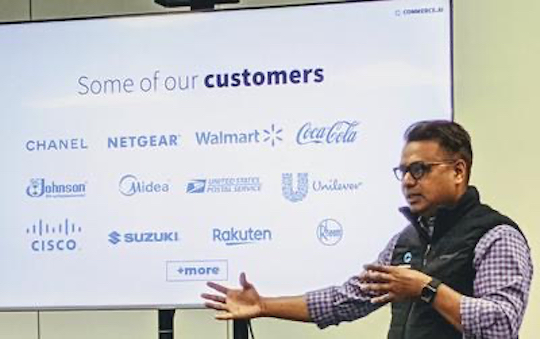Customer Insight-Driven Market Intelligence Means You Should Never Have to Market a Bad Product Again

It's no secret that most new products are unsuccessful. Even the biggest companies on earth struggle with product launches and experience flubs that cost them millions.
According to Nielson, approximately 80 to 85 percent of all fast-moving-consumer-good (FMCG) launches fail in the marketplace. By other estimates, 95 percent of the more than 30,000 products launched each year fail.
Many issues contribute to this discouraging failure rate, including high price points, bad product-launch timing, design flaws, recalls, and unforeseen bugs that can't get resolved. But these issues are small compared to the real problem: a lack of knowledge about what resonates with customers.
Aversion to Market Research
Market research has traditionally been arduous and time consuming, and some CEOs simply don't want to do it. Steve Jobs was one such CEO. He once notoriously said, "You can't just ask customers what they want then try to give that to them. By the time you get it built, they'll want something new."
The aversion to market research is further amplified by the growing trend of side hustles. We're now seeing products spring up every day from unlikely entrepreneurs with no marketing training.
Such entrepreneurs are often bright (and even ingenious in many cases.) But do buyers want their ingenious products? Unfortunately, the answer is usually "no," and newcomers who don't conduct market research have no way of foreseeing the lack of demand for their new product.
Outdated Market Research Methods
Even when brands do conduct market research, they often do it ineffectively. Many marketers use inaccurate surveys and old-school spreadsheets that require long hours of manual analysis. But in the era of big data, traditional questionnaires and manually sifting through reams of information are no longer feasible.
The New Solution: Customer-Insight Driven Market Intelligence
Perhaps Steve Jobs would have been more open to market research if he had access to today's AI and automation capabilities. Fortunately for present-day entrepreneurs and marketers, we not only have a source of rich customer-sentiment data, but we also have the tools needed to make sense of this data.
Where does the customer-sentiment data come from? Customer reviews. Millions and millions of customer reviews in the form of text, images, audio and video. If a product exists, chances are there's online reviews and sentiment about it.
With an ocean of consumer sentiment at our fingertips, we can uncover our customers' feelings about every feature of a product - whether the product is our own or a competitor's.
But how does a brand track millions of customer reviews? The sheer volume of data presents a problem, especially considering that large enterprises might own a hundred brands with dozens of competitors each. Using traditional methods, understanding the voice of the customer regarding all products and all product features is simply impossible.
Eyes and ears are useless in this environment. But with today's AI and machine learning capabilities, a new world of market intelligence is upon us.
Machine Learning Turns Noise into Signal
We've now entered the reality of automated market intelligence. AI such as the CAI model that was developed by Commerce AI automatically scans millions of consumer opinions, comments and reviews about the world's products. It then processes these customer sentients and turns them into usable insights for researching products.
Further, the AI automates product-related workflows so brands can discover new markets, predict product recalls and track the products of competitors. Because such workflows can be generated within seconds rather than months, more CEOs are likely to be quicker to conduct market research than in past eras.
According to Andy Pandharikar, the CEO of Commerce AI, "Using AI for market intelligence, you can find market opportunities to build the right product."
The implications of using AI to build better products (i.e., products that AI reveals to be very likely to resonate with consumers,) are significant. As more brands adopt the technology, the global product failure rate could decrease over time.
"The amount of unstructured product feedback data is doubling each year and consumers are increasingly relying on this data for their own purchasing decisions," says Pandharikar. "You have to use a technology-driven solution to answer what product you should be making next and what features it should include or leave out."
Which brands are already using this technology?
According to Pandharikar, "It's being used by Coca Cola for soft drinks, Suzuki for cars, and even Unilever for their product lines. Progressive brands like Netgear and Cisco are also leveraging the Commerce AI platform to expand their existing product offering to identify new product opportunities and customer segments."
Can AI-based sentiment analysis democratize successful product launches? Could million-dollar failures become a thing of the past? If so, it could benefit individual founders, large brands and all consumers globally. The technology could also lead to a new age of innovation as more entrepreneurs are emboldened to step into the ring.

